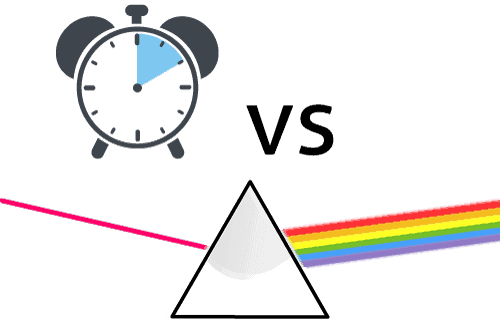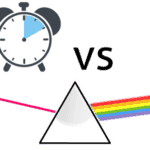Session Based vs Channel Based Call Tracking

There are two types of call tracking – channel based and session based call tracking. For years, the only choice businesses had was channel based call tracking. This was simply assigning a phone number to a specific channel such as Facebook, Google, or any other channel you wanted to measure. It worked well for a long time.
When marketers demanded better metrics, session based call tracking emerged out of, what appeared to be, necessity. But is it really all that useful? I contend that it is not.
Quick Breakdown
Session based call tracking attempts to tie the actual session of the user to a temporary phone number. This number is dynamically inserted into your site. This means that you HAVE to call that number if you call any number. No individual phone number tied to a particular channel. Every number in the pool of numbers can be assigned to any channel. The call tracking system has to keep all of the data straight. This is the value they push.
Channel based call tracking displays phone numbers in the same way. However, it does not attempt to tie the user to a particular session. It approaches metric in aggregate. For example, you will get all of your Twitter phone calls to the same number all the time. So, at the end of the week, if you get 100 phone calls from Twitter, you may not know the session details of each call but you know they all came from Twitter.
Benefits of Session Based Call Tracking
The most talked about benefit of session based call tracking is tied to paid search and display ads. These are ads that you purchase on Google, Bing and other platforms. The ads (and the links associated with them) only display where and when you dictate. This allows you to more accurately measure the efficacy of your ad spend. Session based call tracking claims to allow you to track the efficacy of your ad spend right down to the keyword. This will allow you to make decisions on bidding on those keywords that convert higher. It also enabled one to dial down bids on those keywords that do not perform as well.
How it works

This is done through integrations with the ad platform itself to grab the session ID for every click. The call tracking system has a pool of numbers that it treats much like a stack of cards. When someone clicks on one of your ads, the number on the top of the ‘deck’ is displayed on your website for a set amount of time. This is generally the average time on your site. They take the average number of people on your site at any given time to determine how many numbers make up that pool.
After that time expires, the number is discarded to the bottom of the deck and recycled. At that point, the session is considered ‘over’. As more and more people click on your ads, new numbers are taken from the top of the deck until the pool is exhausted. Then the cycle starts all over again.
When someone picks up the phone and calls your company, any of the numbers in this deck rings through to your office and the system attributes the call to the keyword associated with that session – which also has a respective temporary phone number assigned to it. The call tracking system then connects the dots between phone calls and clicks to tell you which keywords are ringing your phones and which ones are not. Seems simple enough. 🙂
Where Session Based Call Tracking comes off the rails
No utility unless you are doing keyword driven paid advertising
If the above is true, then it stands to reason that any other channel will not get any benefit from session based call tracking. This is because there are no variables to measure. It’s not like you have much control over Google organic. And even if you did, it’s not like you are going to assign temporary numbers to every visitor that comes over from Google because you have no idea what they searched for in order to find the link they clicked on. The same holds true for social, referral, affiliate, email, or any other channel you are choosing to measure.
So session based call tracking, if it indeed does add enough value to justify the premium you pay, is relegated to paid keyword advertising (Google and Bing ads). All of your other channels will be channel-based call tracking anyway. So, if you do not do any keyword advertising, session based call tracking is of no value to you.
Users’ browsing habits create false positives (and false negatives)

I want you to stop reading this for a moment and count up the number of tabs and/or windows you currently have open across any browsers right now. At this moment, I have over 40 tabs open across two instances of Chrome. There are times where I have many more. Plenty of these tabs have been open for days.
So:
- the number prescribed to any of these tabs (i.e., 212-555-1313 for example)
- ia associated to an ad I clicked (i.e., buy our fruit)
- with a particular keyword assigned to it (i.e., red apples)
- I clicked on that ad 6 hours ago
the call tracking system has tied my session to that keyword and that number – 6 hours ago. However, I have not called. So ‘red apples’ has not done its job to get me to convert.
But wait! What if I just did not have time to call yet and I decide to call tomorrow? Well, by that time, 212-555-1313 is likely recycled. Maybe it was recycled more than once during that period. Maybe it is currently assigned to ‘green apples’ when I do pick up the phone and call. So no only does ‘red apples’ not get credit when it deserves it but ‘green apples’ gets credit when it does not.
You have to stay with the call tracking provider
There are a few risky things about call tracking providers:
A hostage situation

- Depending on the level of traffic on your site, that pool of numbers could be quite large. It could be 30, 50, 100 numbers that you now have to port back to your telephone carrier – that you already pay for – and maintain them moving forward.
- And none of them have any type of definition to them. You won’t have a Facebook number and a Bing organic number and a Yelp number. You will have a pile of numbers that used for all of those channels. They are murky without the data that is in the call tracking platform you just left.
It ain’t cheap

- Call tracking software is usage based – so you pay for every minute you are on the phone with your inbound customers. It can be 2¢/minute or it can be 10¢/minute. What’s 2¢/minute in the grand scheme of things though? Well, if you have 10 salespeople and they all take three hours of inbound calls a day, five days a week, you’re looking about $720/month in usage PLUS your regular monthly bill.
- The call tracking service owns those numbers displayed and called on your website. If you leave, you can have them back. It may take a few weeks or a few months, depending on how the service works. Even if it is a few weeks, what business can afford to have their inbound efforts hamstrung for that long? Who can afford it?
So, it’s safe to say that once you are on a session based call tracking system there are plenty of reasons keeping you there. And as your business grows those fees grow with it.
Channel based call tracking to the rescue
There are some clear benefits to using channel based call tracking. A big one is that it falls in line with crafting your online marketing mix based on channels. Some of these will vary depending on what service you use. It’s worth thoroughly researching this carefully to make sure you are getting what you need.
Simpler data
Measuring channel efficacy in aggregate may not seem as elegant or precise — but hear me out. If you are pulling monster traffic on your site, running a 100 person call center, and the bulk of your marketing efforts are keyword driven ad buys, I can see a case for session based call tracking.
But if you are like most businesses, you are not doing that. This means that you are working off of a smaller dataset. This is subject to random swings on the keyword level. How many clicks does ‘red apples’ get a week? And out of those clicks, how many phone calls do you get? And out of those phone calls, how many really searched ‘green apples’ but just didn’t call until an hour later? If you are not dealing in the hundreds of clicks per keyword, you aren’t getting enough data to make it worth doing session based stuff.
Aggregate isn’t always vague
It is possible to break down aggregate data to a level beyond simply a single channel. It can be broken down to a single ad campaign – or even more precisely – a single ad group. Best practices is to have between 10 and 20 words in an ad group for Google AdWords. You should do between three and five ad variations of ad in any Facebook campaign. Perhaps you can get enough clicks at that level to see if the group is effective and play with the keywords words/ads from there. You don’t need to get down to the keyword if you are under a five figure a month ad spend IMO.
Fewer numbers
Less is more for lots of things and phone number are no exception. If you are going to measure 20 channels, you need 21 numbers. Each number is dedicated to its own channel. This makes channels easier to measure. There is no fussing around with multiple numbers per channel. And you know what every call represents. Unless you are a data scientist, doing all of that data matching probably isn’t an option for you.
Own your numbers
This is straightforward. They are your numbers. You should own them. You don’t need to be held hostage by a vendor who removes all context on those numbers when you stop paying them. The numbers are relatively useless that way but you can’t discard them. Some people actually write down phone numbers. You don’t need a prospective customer calling you in a few months and getting John’s Pizza when they are looking to buy a house or a life insurance policy.
No additional telecom systems
If you have a decent telephone system, you already have most of what you need to do your own call tracking. Local numbers convert better and most carries charge little or nothing for add-on numbers. And inbound local is free. And Google favors local phone numbers. If that’s not the case for you, you need to get a new phone system. Why? Because you are still going to be using the system the same amount. You will just be parsing out your calls across different numbers.
And any modern phone system will allow you to put a label on any inbound phone number so you will know the channel the caller is coming in on – just by looking at the phone.
The big takeaway
Things have become very technical and complicated for marketer over the last few years. There is no reason to needlessly complicate things just because you can. There are companies that need session based call tracking. Those companies have huge advertising budgets. And as I stated above, session based call tracking doesn’t always work.
Channel based call tracking ALWAYS works. You just don’t get the same level of granularity in the data. It really comes down to, “Do you really need that granularity?” I’m betting you don’t. Is it worth $2,000 a month to reduce your ad spend by $200? What could you do with that money? Infrastructure? New systems? An additional hire?
At Prismana, we are all about making the best use of your resources. They’re limited so use them wisely.
Measuring your marketing efforts doesn’t have to be complicated or daunting. Call tracking can be simplified. Take a look at Prismana’s benefits of bringing your call tracking in-house and see the difference it can make with your internal systems. While you are at it, check out some of the many other benefits of the platform – because it’s not just call tracking.




